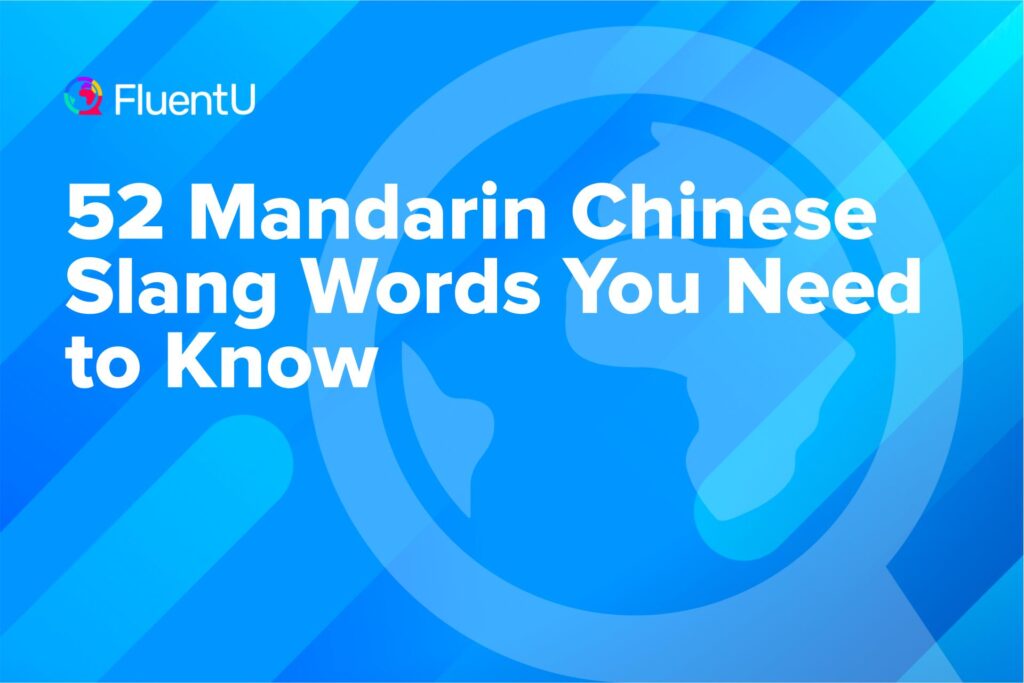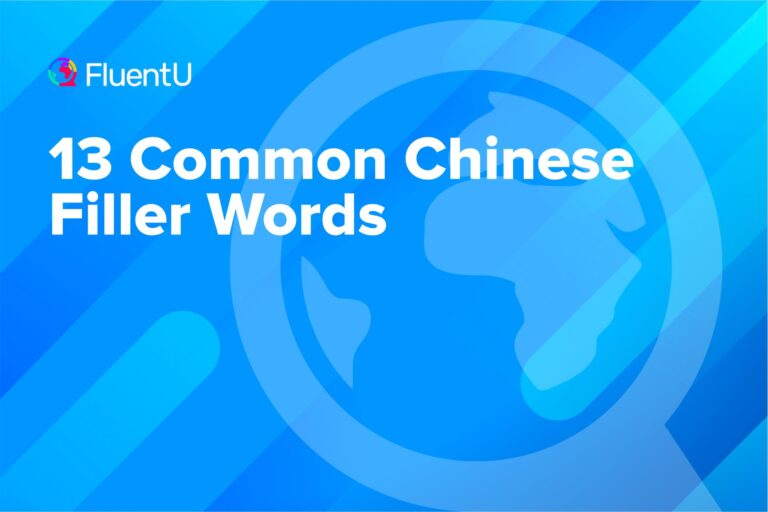Contents
- 1. 九四 (jiǔ sì) — Exactly / I know
- 2. 二百五 (èr bǎi wǔ) — Idiot
- 3. MM — Younger sister / Girl (who is pretty)
- 4. PMP — Suck up
- 5. 阿猫阿狗 (ā māo ā gǒu) — Any Tom, Dick or Harry
- 6. 算了 (suàn le) — Forget it
- 7. 去你的 (qù nǐ de) — Go away / Screw you
- 8. 不咋的 (bù zǎ di) — Not great
- 9. 爱谁谁 (ài shéi shéi) — Whatever
- 10. 才不呢 (cái bù ne) — No way
- 11. 丑八怪 (chǒu bā guài) — Ugly
- 12. 花心 (huā xīn) — Player / Fickle-hearted
- 13. 土 (tǔ) — Unfashionable
- 14. 没门儿 (méi ménr) — Not a chance
- 15. 眼皮底下 (yǎn pí dǐ xia) — Right under one’s nose
- 16. 囧 (jiǒng) — Blah / Ugh
- 17. 我看行 (wǒ kàn xíng) — I think it’s okay
- 18. 打酱油 (dǎ jiàng yóu) — None of my business
- 19. 菜鸟 (cài niǎo) — Newbie
- 20. 剩女 (shèng nǚ) — Leftover women
- 21. 钻石王老五 (zuàn shí wáng lǎo wǔ) — Eligible bachelor
- 22. 闹太套 (nào tài tào) — Make a fool of oneself
- 23. 小鲜肉 (xiǎo xiān ròu) — Young, attractive man
- 24. 吃土 (chī tǔ) — To eat dirt
- 25. 躺平 (tǎng píng) — To lie flat
- 26. 佛系 (fó xì) — Buddhist style
- 27. 巨婴 (jù yīng) — Giant baby
- 28. 杠精 (gàng jīng) — A person who argues or nitpicks for the sake of it
- 29. 打脸 (dǎ liǎn) — Slap in the face
- 30. 扎心 (zhā xīn) — Heart-piercing
- 31. 秒懂 (miǎo dǒng) — To instantly understand
- 32. 套路 (tào lù) — A scheme or trick
- 33. 玻璃心 (bō li xīn) — Glass heart
- 34. 舔狗 (tiǎn gǒu) — Bootlicker
- 35. 学渣 (xué zhā) — A bad student or underachiever academically
- 36. 吃瓜 (chī guā) — Eating melon
- 37. 卧槽 (wò cào) — “WTF”
- 38. 妈粉 (mā fěn) — Mom fan
- 39. 云养猫 (yún yǎng māo) — Cloud cat-owning
- 40. 打鸡血 (dǎ jī xuè) — Injected with chicken blood
- 41. 无语 (wú yǔ) — Speechless
- 42. 毒鸡汤 (dú jī tāng) — Toxic chicken soup
- 43. 猪队友 (zhū duì yǒu) — Pig teammate
- 44. 尾款人 (wěi kuǎn rén) — Tail payment person
- 45. 社恐 (shè kǒng) — Social anxiety
- 46. 中二 (zhōng èr) — Eighth-grade syndrome
- 47. 舔屏 (tiǎn píng) — Licking the screen
- 48. 舔颜 (tiǎn yán) — To be obsessed with someone’s looks
- 49. 撸猫 (lū māo) — To pet cats
- 50. 断舍离 (duàn shě lí) — Minimalist lifestyle
- 51. 钢铁直男 (gāng tiě zhí nán) — Steel straight man
- 52. 工具人 (gōng jù rén) — Tool person
- And One More Thing...
52 Mandarin Chinese Slang Words You Need to Know

Learning Mandarin Chinese slang words will greatly improve your day-to-day communication with native speakers. Plus, you’ll be up to date with trending Chinese pop culture, which is constantly changing.
Here are 52 Chinese slang words you’ll hear in conversations and online.
Download: This blog post is available as a convenient and portable PDF that you can take anywhere. Click here to get a copy. (Download)
| Chinese | Pinyin | Meaning |
|---|---|---|
| 九四 | jiǔ sì | Exactly / I know |
| 二百五 | èr bǎi wǔ | Idiot |
| MM | Younger sister / Girl (who is pretty) | |
| PMP | Suck up | |
| 阿猫阿狗 | ā māo ā gǒu | Any Tom, Dick or Harry |
| 算了 | suàn le | Forget it |
| 去你的 | qù nǐ de | Go away / Screw you |
| 不咋的 | bù zǎ di | Not great |
| 爱谁谁 | ài shéi shéi | Whatever |
| 才不呢 | cái bù ne | No way |
| 丑八怪 | chǒu bā guài | Ugly |
| 花心 | huā xīn | Player / Fickle-hearted |
| 土 | tǔ | Unfashionable |
| 没门儿 | méi ménr | Not a chance |
| 眼皮底下 | yǎn pí dǐ xia | Right under one's nose |
| 囧 | jiǒng | Blah / Ugh |
| 我看行 | wǒ kàn xíng | I think it's okay |
| 打酱油 | dǎ jiàng yóu | None of my business |
| 菜鸟 | cài niǎo | Newbie |
| 剩女 | shèng nǚ | Leftover women |
| 钻石王老五 | zuàn shí wáng lǎo wǔ | Eligible bachelor |
| 闹太套 | nào tài tào | Make a fool of oneself |
| 小鲜肉 | xiǎo xiān ròu | Young, attractive man |
| 吃土 | chī tǔ | To eat dirt (to be broke) |
| 躺平 | tǎng píng | To lie flat (to opt out of hard work) |
| 佛系 | fó xì | Buddhist style (laid back and indifferent) |
| 巨婴 | jù yīng | Giant baby |
| 杠精 | gàng jīng | A person who argues or nitpicks for the sake of it |
| 打脸 | dǎ liǎn | Slap in the face |
| 扎心 | zhā xīn | Heart-piercing |
| 秒懂 | miǎo dǒng | To instantly understand |
| 套路 | tào lù | A scheme or trick |
| 玻璃心 | bō li xīn | Glass heart (someone overly sensitive) |
| 舔狗 | tiǎn gǒu | Bootlicker |
| 学渣 | xué zhā | A bad student or underachiever academically |
| 吃瓜 | chī guā | Eating melon |
| 卧槽 | wò cào | “WTF” |
| 妈粉 | mā fěn | Mom fan (a fan who treats celebrities like their children) |
| 云养猫 | yún yǎng māo | Cloud cat owning |
| 打鸡血 | dǎ jī xuè | Injected with chicken blood (full of energy) |
| 无语 | wú yǔ | Speechless |
| 毒鸡汤 | dú jī tāng | Toxic chicken soup (negative life advice disguised as positivity) |
| 猪队友 | zhū duì yǒu | Pig teammate (someone on your team who hinders instead of helping) |
| 尾款人 | wěi kuǎn rén | Tail payment person (someone who struggles to pay off online shopping bills) |
| 社恐 | shè kǒng | Social anxiety |
| 中二 | zhōng èr | Eighth-grade syndrome |
| 舔屏 | tiǎn píng | Licking the screen |
| 舔颜 | tiǎn yán | To be obsessed with someone’s looks |
| 撸猫 | lū māo | To pet cats |
| 断舍离 | duàn shě lí | Minimalist lifestyle |
| 钢铁直男 | gāng tiě zhí nán | Steel straight man (an extremely insensitive or unromantic guy) |
| 工具人 | gōng jù rén | Tool person |
1. 九四 (jiǔ sì) — Exactly / I know
九四 literally means nine (九) and four (四). So 94 became slang for “exactly” or “I know” because of how close it sounds to the literal translation, 就是 (jiù shì).
A: 你真漂亮。
(nǐ zhēn piào liang.)
You are so beautiful.
B: 94, 我知道。
(jiǔ sì, wǒ zhī dào.)
Yes, I know.
2. 二百五 (èr bǎi wǔ) — Idiot
二百五 literally means 250.
In Chinese history, copper coins were strung together by threading twine or rope through the square holes in the center. A thousand coins strung together was called a “diao.” Half of a diao, or 半吊子 (bàn diào zi), was used as slang to talk about someone who was inadequate.
As a way to describe themselves, modest Chinese scholars went a step further and took half of the half—hence the 250—to say that they were real idiots.
他真的是个二百五!
(tā zhēn de shì gè èr bǎi wǔ!)
He really is an idiot!
Mandarin has a lot of number slang. These two are particularly helpful to know, but I won’t cover all of them here. You can read more about Chinese number slang in this post:
https://www.fluentu.com/blog/chinese/chinese-number-slang/
3. MM — Younger sister / Girl (who is pretty)
MM is short for 妹妹 (mèi mei) — younger sister, like how GG stands for “boy” or “brother” because of 哥哥 (gē gē) — older brother. But it can simply mean “pretty girl.”
It’s also a bit outdated these days, so I recommend really taking your cue on this one from native speakers in order to not sound too behind the times.
MM的名字叫小红。
(MM de míng zì jiào xiǎo hóng.)
The pretty girl’s name is Xiao Hong (lit. Little Red).
You can read more about Chinese internet slang here:
Chinese Internet Slang: 38 Words to Get You Chatting Online Like a Native
While it may seem confusing at first, Chinese internet slang can be very rewarding to learn and opens up a whole new sphere of communication with fellow Chinese internet…
4. PMP — Suck up
PMP comes from the phrase 拍马屁 (pāi mǎ pì), which means “bootlicker” or “suck up.” So it’s someone who may just be flattering you or someone who’s not being completely truthful about the situation.
你不要在我面前PMP。
(nǐ bù yào zài wǒ miàn qián PMP pāi mǎ pì.)
Do not flatter me.
5. 阿猫阿狗 (ā māo ā gǒu) — Any Tom, Dick or Harry
This phrase literally says “a cat and a dog,” but it means something like “just anyone”—in a bad way. The origins come from Ancient China, where 阿猫 and 阿狗 individually were often used as nicknames for people.
导演不会找阿猫阿狗当女主角。
(dǎo yǎn bú huì zhǎo ā māo ā gǒu dāng nǚ zhǔ jué.)
The director would not choose just anyone to be the star actress.
6. 算了 (suàn le) — Forget it
算了 can be used in many situations, meaning anything from a casual “whatever” in everyday scenarios to a firm or more serious “let it go.”
A: 你明天晚上还想出去跳舞吗?
(nǐ míng tiān wǎn shàng hái xiǎng chū qù tiào wǔ ma?)
Do you still want to go dancing tomorrow night?
B: 算了吧。
(suàn le ba.)
Let’s forget it.
7. 去你的 (qù nǐ de) — Go away / Screw you
去你的 can mean “Go away!” or “Off with you!” Or, it could be a bit more serious, like “Go to hell,” or the more explicit version of “Screw you.” When joking or in the right situation, it can be appropriate to use. But as always, be careful with this slang if you’re not trying to offend your friends.
A: 你不应该这么鲁莽。
(nǐ bù yīng gāi zhè me lǔ mǎng.)
You shouldn’t be so reckless.
B: 去你的!
(qù nǐ de!)
Screw you!
8. 不咋的 (bù zǎ di) — Not great
不咋的 is similar to the English phrases “not so hot” and “nothing special.” It can be used to describe a situation or a person.
我认识他, 他不咋的。
(wǒ rèn shí tā, tā bù zǎ di.)
I know him. He’s not that great.
9. 爱谁谁 (ài shéi shéi) — Whatever
This Chinese slang essentially means, “Do what you want.” It has a nonchalant attitude, similar to the English phrase, “who cares.” It stems from the Beijing dialect and is most popular there.
这事就这样了, 不能再改变了。爱谁谁!
(zhè shì jiù zhè yàng le, bù néng zài gǎi biàn le. ài shéi shéi!)
I’m done talking about this issue, it can’t be changed. Whatever—I don’t care anymore!
10. 才不呢 (cái bù ne) — No way
才不呢 is an idiom similar in meaning to “no way” or “not at all.” It’s commonly used like the English phrase, “Of course not!”
A: 她是你的女朋友吗?
(tā shì nǐ de nǚ péng yǒu ma?)
Is she your girlfriend?
B: 才不呢!
(cái bù ne!)
Of course not!
11. 丑八怪 (chǒu bā guài) — Ugly
This phrase is an extreme way of saying someone is ugly. It roughly translates to “monster-looking,” like how in English we might say “troll.” It can sometimes be used affectionately, but that’s rare. It’s usually pretty mean.
昨天晚上, 我碰见了一个丑八怪。
(zuó tiān wǎn shàng, wǒ pèng jiàn le yī gè chǒu bā guài.)
Last night, I met someone really ugly.
12. 花心 (huā xīn) — Player / Fickle-hearted
Though 花心 can be used about women, it’s usually used to describe men who are perpetually unfaithful to their partners. Another modern slang with the same meaning is 海王 (hǎi wáng), which literally means “sea king.”
你这个花心大萝卜!
(nǐ zhè ge huā xīn dà luó bo!)
You cheating scum! (Lit. You flower heart carrot!)
13. 土 (tǔ) — Unfashionable
他的衣服有点土。
(tā de yī fú yǒu diǎn tǔ.)
His clothes are a bit shabby.
14. 没门儿 (méi ménr) — Not a chance
想从我这里打听一点消息,没门儿!
(xiǎng cóng wǒ zhè lǐ dǎ tīng xiāo xī, méi ménr!)
You think you can get information from me? Fat chance!
15. 眼皮底下 (yǎn pí dǐ xia) — Right under one’s nose
While the English version of this slang is about the nose, the literal translation here is “under the eyelids.”
我手机从我眼皮底下被小偷偷走了!
(wǒ shǒu jī cóng wǒ yǎn pí dǐ xia bèi xiǎo tōu tōu zǒu le!)
A thief stole my phone from right under my nose!
16. 囧 (jiǒng) — Blah / Ugh
囧 originally meant “bright.” But after growing popular in Taiwanese chatrooms as a distraught-looking face, it came to express feelings of helplessness, sadness, awkwardness, disappointment or just a general “ugh”—no other words needed.
我刚刚太囧了。
(wǒ gāng gāng tài jiǒng le.)
I was so embarrassed just now.
17. 我看行 (wǒ kàn xíng) — I think it’s okay
A: 我们今晚出去吃吧?
(wǒ men jīn wǎn chū qù chī ba?)
Shall we eat out tonight?
B: 我看行。
(wǒ kàn xíng.)
I’m fine with that.
18. 打酱油 (dǎ jiàng yóu) — None of my business
打酱油 literally means “getting soy sauce,” but it’s understood in the right contexts as “that’s none of my business” or even “doing nothing serious.”
This is because of a viral Chinese interview when, after being asked about a pop singer’s sex scandal, a man said “关我屌事,我出来打酱油的。“(guān wǒ diǎo shì, wǒ chū lái dǎ jiàng yóu de.)” meaning, “What’s that got to do with me? I’m just here to buy soy sauce.”
我今天就是来打酱油的。
(wǒ jīn tiān jiù shì lài dǎ jiàng yóu de.)
I’m just here to fool around today.
19. 菜鸟 (cài niǎo) — Newbie
你是中文菜鸟吗?
(nǐ shì zhōng wén cài niǎo ma?)
Are you a newbie in Chinese?
20. 剩女 (shèng nǚ) — Leftover women
I couldn’t make this up if I tried.
This slang is used to describe women who enjoy a high level of education, income, IQ and have the looks to boot—but have high standards when it comes to the opposite sex, making them unable to meet their ideal partner…and probably not so young anymore, either.
她的妈妈总担心她成为剩女。
(tā de mā ma zǒng dān xīn tā chéng wéi shèng nǚ.)
Her mom is always worried that she will become a leftover girl.
21. 钻石王老五 (zuàn shí wáng lǎo wǔ) — Eligible bachelor
In case any guys are feeling left out, I have this term for you. It basically means “eligible bachelor,” but with an extra emphasis on being rich. Literally, it means “diamond” and “fifth child of Wang,” the latter implying that the person is from a family of good social standing.
However, 小鲜肉 (xiǎo xiān ròu) is becoming a bit more popular nowadays (more on this one later).
她喜欢钻石王老五类型的男人。
(tā xǐ huan zuàn shí wáng lǎo wǔ lèi xíng de nán rén.)
She likes the eligible bachelor type of men.
22. 闹太套 (nào tài tào) — Make a fool of oneself
The phrase is used these days to indicate that someone is trying to show off when they really aren’t very good. It originated when a popular Chinese actor and singer pronounced “not at all” in English as 闹太套.
他犯下了”闹太套”的错误。
(tā fàn xià le “nào tài tào” de cuò wù.)
He has made the mistake of making a fool out of himself.
You can learn a lot more natural Mandarin—from slang to idioms to colloquialisms— by watching Chinese videos like that one and staying up-to-date with Chinese culture. One easy way to do this is by using FluentU.
FluentU takes authentic videos—like music videos, movie trailers, news and inspiring talks—and turns them into personalized language learning lessons.
You can try FluentU for free for 2 weeks. Check out the website or download the iOS app or Android app.
P.S. Click here to take advantage of our current sale! (Expires at the end of this month.)
23. 小鲜肉 (xiǎo xiān ròu) — Young, attractive man
As mentioned in #21, this is a more modern version of 钻石王老五.
这个剧的主角是个小鲜肉,吸引了很多年轻观众。
(zhè gè jù de zhǔ jiǎo shì gè xiǎo xiān ròu, xī yǐn le hěn duō nián qīng guān zhòng.)
The lead in this show is a young, attractive guy, which has attracted a lot of young viewers.
24. 吃土 (chī tǔ) — To eat dirt
Saying someone “eats dirt” is a way to say they’re broke.
最近我花了太多钱,月底只能吃土了。
(zuì jìn wǒ huā le tài duō qián, yuè dǐ zhǐ néng chī tǔ le.)
I spent too much money recently, so I’ll be broke by the end of the month.
25. 躺平 (tǎng píng) — To lie flat
This means “opting out of the rat race.” Basically, to take a break from hard work.
工作压力太大了,我决定躺平,不再拼命了。
(gōng zuò yā lì tài dà le, wǒ jué dìng tǎng píng, bú zài pīn mìng le.)
The work pressure is too much, so I’ve decided to lie flat and stop pushing myself so hard.
26. 佛系 (fó xì) — Buddhist style
Someone who is “Buddhist style” is laid back and has an indifferent attitude.
他是个佛系青年,对什么事情都不太在意。
(tā shì gè fó xì qīng nián, duì shén me shì qíng dōu bú tài zài yì.)
He’s a laid-back kind of guy who doesn’t care much about anything.
27. 巨婴 (jù yīng) — Giant baby
A giant baby is an immature adult—pretty similar to calling someone a baby in English.
他都三十岁了,还总是依赖父母,简直是个巨婴。
(tā dōu sān shí suì le, hái zǒng shì yī lài fù mǔ, jiǎn zhí shì gè jù yīng.)
He’s already 30 years old and still relies on his parents; he’s practically a giant baby.
28. 杠精 (gàng jīng) — A person who argues or nitpicks for the sake of it
每次开会他都喜欢跟人抬杠,真是个杠精。
(měi cì kāi huì tā dōu xǐ huān gēn rén tái gàng, zhēn shì gè gàng jīng.)
Every time we have a meeting, he loves to argue with others; he’s truly a contrarian.
29. 打脸 (dǎ liǎn) — Slap in the face
In Chinese, a “slap in the face” means being proven wrong or getting embarrassed about something.
他原本很自信地说项目会成功,结果失败了,真是被打脸了。
(tā yuán běn hěn zì xìn de shuō xiàng mù huì chéng gōng, jié guǒ shī bài le, zhēn shì bèi dǎ liǎn le.)
He was so confident that the project would succeed, but it ended up failing, which was a real slap in the face.
30. 扎心 (zhā xīn) — Heart-piercing
Something “heart-piercing” is something that hits hard emotionally, or “heart-wrenching.”
听到他对我的评价,真的有点扎心了。
(tīng dào tā duì wǒ de píng jià, zhēn de yǒu diǎn zhā xīn le.)
Hearing his opinion of me was really a bit heart-wrenching.
31. 秒懂 (miǎo dǒng) — To instantly understand
她刚说完,我就秒懂了她的意思。
(tā gāng shuō wán, wǒ jiù miǎo dǒng le tā de yì si.)
As soon as she finished speaking, I instantly understood what she meant.
32. 套路 (tào lù) — A scheme or trick
他总是用同样的套路来哄人,大家早就看穿了。
(tā zǒng shì yòng tóng yàng de tào lù lái hǒng rén, dà jiā zǎo jiù kàn chuān le.)
He always uses the same tricks to sweet-talk people; everyone has already seen through it.
33. 玻璃心 (bō li xīn) — Glass heart
Someone who has a “glass heart” is an overly sensitive person.
你别对他说那么直接,他有点玻璃心,容易受伤。
(nǐ bié duì tā shuō nàme zhí jiē, tā yǒu diǎn bō li xīn, róng yì shòu shāng.)
Don’t be too direct with him; he’s a bit sensitive and gets hurt easily.
34. 舔狗 (tiǎn gǒu) — Bootlicker
Similar to English, a “bootlicker” in Chinese slang is someone who pines for someone who doesn’t reciprocate.
他每天都给她买早餐,送礼物,可她根本不在意,他真是个舔狗。
(tā měi tiān dōu gěi tā mǎi zǎo cān, sòng lǐ wù, kě tā gēn běn bù zài yì, tā zhēn shì gè tiǎn gǒu.)
He buys her breakfast and gives her gifts every day, but she doesn’t care at all; he’s really just a bootlicker.
35. 学渣 (xué zhā) — A bad student or underachiever academically
他总是说自己是学渣,其实他只是不喜欢用功。
(tā zǒng shì shuō zì jǐ shì xué zhā, qí shí tā zhǐ shì bù xǐ huān yòng gōng.)
He always says he’s a bad student, but the truth is he just doesn’t like to put in the effort.
36. 吃瓜 (chī guā) — Eating melon
To “eat melon” means to spectate gossip or drama.
大家都在群里吃瓜,讨论明星的八卦新闻。
(dà jiā dōu zài qún lǐ chī guā, tǎo lùn míng xīng de bā guà xīn wén.)
Everyone is in the group chat eating melon and discussing celebrity gossip.
37. 卧槽 (wò cào) — “WTF”
他居然把我的手机摔坏了,卧槽,太过分了!
(tā jū rán bǎ wǒ de shǒu jī shuāi huài le, wò cào, tài guò fèn le!)
He actually broke my phone—WTF, that’s too much!
38. 妈粉 (mā fěn) — Mom fan
妈粉 is an interesting word that means a fan who treats celebrities like their children. This might sound weird since we don’t have an equivalent of this in the West, but it’s basically a person who absolutely dotes on their favorite celebrities—like sharing every single one of their posts.
她是个典型的妈粉,看到喜欢的明星就像对待自己的孩子一样。
(tā shì gè diǎn xíng de mā fěn, kàn dào xǐ huān de míng xīng jiù xiàng duì dài zì jǐ de hái zi yī yàng.)
She’s a typical ‘mom fan’; she treats her favorite celebrities like they’re her own children.
39. 云养猫 (yún yǎng māo) — Cloud cat-owning
This is a funny, highly specific slang word. Cloud cat-owning is watching cat videos online without actually owning one.
由于不能养宠物,我只能通过看猫咪视频来云养猫。
(yóu yú bù néng yǎng chǒng wù, wǒ zhǐ néng tōng guò kàn māo mī shì pín lái yún yǎng māo.)
Since I can’t have a pet, I can only ‘cloud-raise’ cats by watching cat videos.
40. 打鸡血 (dǎ jī xuè) — Injected with chicken blood
When someone is injected with chicken blood, it means they’re overly energetic.
今天早上喝了杯浓咖啡,我感觉自己打鸡血一样,精力充沛。
(jīn tiān zǎo shang hē le bēi nóng kā fēi, wǒ gǎn jué zì jǐ dǎ jī xuè yī yàng, jīng lì chōng pèi.)
After having a strong cup of coffee this morning, I feel like I’ve been injected with chicken blood—full of energy.
41. 无语 (wú yǔ) — Speechless
Being 无语 means to be speechless, but specifically due to disappointment or disbelief.
他居然说他忘记了我的生日,真是让我无语。
(tā jū rán shuō tā wàng jì le wǒ de shēng rì, zhēn shì ràng wǒ wú yǔ.)
He actually said he forgot my birthday, it really left me speechless.
42. 毒鸡汤 (dú jī tāng) — Toxic chicken soup
“Toxic chicken soup” is negative life advice disguised as positivity.
他总是喜欢发一些毒鸡汤,告诉我们“人生就是这么残酷”。
(tā zǒng shì xǐ huān fā yī xiē dú jī tāng, gào sù wǒ men “rén shēng jiù shì zhè me cán kù.”)
He always likes to share some toxic chicken soup, telling us that “life is just that harsh.”
43. 猪队友 (zhū duì yǒu) — Pig teammate
A “pig teammate” is someone on your team who hinders instead of helps.
在团队项目中,他没有做任何实质性工作,完全是个猪队友。
(zài tuán duì xiàng mù zhōng, tā méi yǒu zuò rèn hé shí zhì xìng gōng zuò, wán quán shì gè zhū duì yǒu.)
In the team project, he didn’t contribute anything substantial; he was totally a pig teammate.
44. 尾款人 (wěi kuǎn rén) — Tail payment person
This is a person who struggles to pay off online shopping bills so they delay payments—like charges to a credit card—until the last moment.
我是个尾款人,刚刚支付了最后一笔购物款项。
(wǒ shì gè wěi kuǎn rén, gāng gāng zhī fù le zuì hòu yī bǐ gòu wù kuǎn xiàng.)
I’m a tail payment person; I just paid the final installment for my purchase.
45. 社恐 (shè kǒng) — Social anxiety
由于社恐,他总是避免参加聚会,宁愿一个人待在家里。
(yóu yú shè kǒng, tā zǒng shì bì miǎn cān jiā jù huì, nìng yuàn yī gè rén dāi zài jiā lǐ.)
Due to social anxiety, he always avoids attending parties and prefers staying at home alone.
46. 中二 (zhōng èr) — Eighth-grade syndrome
“Eighth-grade syndrome” refers to childish behavior.
他总是说一些很夸张的话,完全是个中二少年。
(tā zǒng shì shuō yī xiē hěn kuā zhāng de huà, wán quán shì gè zhōng èr shào nián.)
He always says exaggerated things; he’s totally an eighth-grade syndrome teenager.
47. 舔屏 (tiǎn píng) — Licking the screen
To “lick the screen” means to admire someone’s photos intensely.
看到偶像的照片,她忍不住舔屏,简直是个死忠粉。
(kàn dào ǒu xiàng de zhào piàn, tā rěn bù zhù tiǎn píng, jiǎn zhí shì gè sǐ zhōng fěn.)
When she saw her idol’s picture, she couldn’t help but ‘lick the screen’; she’s truly a die-hard fan.
48. 舔颜 (tiǎn yán) — To be obsessed with someone’s looks
他看到喜欢的明星发微博,忍不住舔颜,简直无法自拔。
(tā kàn dào xǐ huān de míng xīng fā wēi bó, rěn bù zhù tiǎn yán, jiǎn zhí wú fǎ zì bá.)
When he saw his favorite celebrity post on Weibo, he couldn’t help but admire them, completely lost in admiration.
49. 撸猫 (lū māo) — To pet cats
每天下班后,我最喜欢做的就是坐在沙发上撸猫,放松一下。
(měi tiān xià bān hòu, wǒ zuì xǐ huān zuò de jiù shì zuò zài shā fā shàng lū māo, fàng sōng yī xià.)
After work every day, my favorite thing to do is sit on the couch and pet the cat, just to relax.
50. 断舍离 (duàn shě lí) — Minimalist lifestyle
In other words, cutting off clutter or unnecessary things.
最近我开始做断舍离,整理了很多不再需要的东西,感觉轻松多了。
(zuì jìn wǒ kāi shǐ zuò duàn shě lí, zhěng lǐ le hěn duō bù zài xū yào de dōng xī, gǎn jué qīng sōng duō le.)
Recently, I started practicing duàn shě lí, and I’ve organized a lot of things I no longer need; I feel much lighter.
51. 钢铁直男 (gāng tiě zhí nán) — Steel straight man
As the name kind of implies, a “steel straight man” is an extremely insensitive or unromantic guy.
他真是个钢铁直男,完全不懂她为什么生气。
(tā zhēn shì gè gāng tiě zhí nán, wán quán bù dǒng tā wèi shén me shēng qì.)
He’s really a steel straight guy, completely clueless about why she’s upset.
52. 工具人 (gōng jù rén) — Tool person
This is someone used by others only as a means to an end.
他总是帮忙做所有的事情,却从来没有得到任何感谢,感觉自己成了工具人。
(tā zǒng shì bāng máng zuò suǒ yǒu de shì qíng, què cóng lái méi yǒu dé dào rèn hé gǎn xiè, gǎn jué zì jǐ chéng le gōng jù rén.)
He always helps with everything but never gets any thanks; he feels like he’s just a tool for others.
There you have it! These 52 Chinese slang phrases will help you speak more like a native and get you on your way to mastering both textbook and colloquial Mandarin.
Download: This blog post is available as a convenient and portable PDF that you can take anywhere. Click here to get a copy. (Download)
And One More Thing...
If you want to continue learning Chinese with interactive and authentic Chinese content, then you'll love FluentU.
FluentU naturally eases you into learning Chinese language. Native Chinese content comes within reach, and you'll learn Chinese as it's spoken in real life.
FluentU has a wide range of contemporary videos—like dramas, TV shows, commercials and music videos.
FluentU brings these native Chinese videos within reach via interactive captions. You can tap on any word to instantly look it up. All words have carefully written definitions and examples that will help you understand how a word is used. Tap to add words you'd like to review to a vocab list.
FluentU's Learn Mode turns every video into a language learning lesson. You can always swipe left or right to see more examples for the word you're learning.
The best part is that FluentU always keeps track of your vocabulary. It customizes quizzes to focus on areas that need attention and reminds you when it’s time to review what you’ve learned. You have a 100% personalized experience.
Start using the FluentU website on your computer or tablet or, better yet, download the FluentU app from the iTunes or Google Play store. Click here to take advantage of our current sale! (Expires at the end of this month.)








